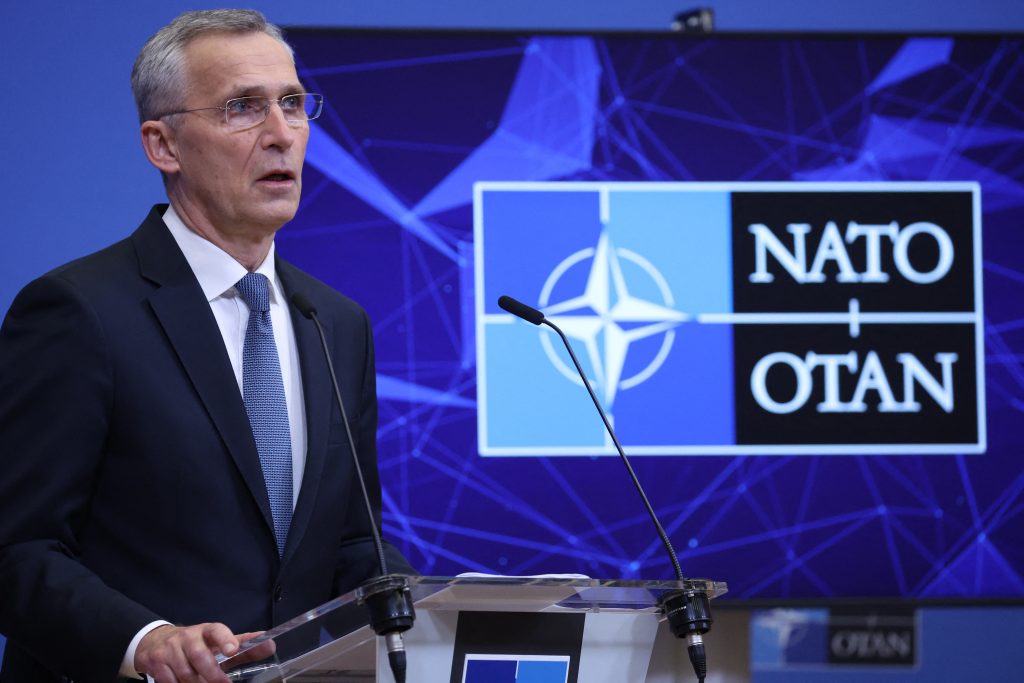NATO leaders announced on Friday a military redeployment of its land, sea and air forces to reinforce its frontline in response to Russia's war in Ukraine.
The US-led defence organisation is "now making significant additional defensive deployments of forces to the eastern part of the Alliance," it said in a statement on closing a special summit of its 30 member states.
Confronted with "the gravest threat to Euro-Atlantic security in decades," leaders warned that "no-one should be fooled by the Russian Government’s barrage of lies."
"What we see now is a full-fledged invasion of Ukraine from multiple directions... air, sea and land," NATO Secretary-General Jens Stoltenberg told a press conference in Brussels as the talks wrapped up.
"We also see the rhetoric... strongly indicating that the aim is to change the democratically elected government in Kyiv."
On suggestions of possible talks were Ukrainian President Volodymyr Zelensky to bow to Putin's demands to lay down weapons and adopt a 'neutral' posture, Stoltenberg was more ambiguous.
"On the potential talks between the government of Ukraine, President Zelensky, and Russia, my main message is this is for the government, President Zelensky and Ukraine to decide," the outgoing Norwegian head said.
A united front to prevent the conflict spreading
Friday's summit saw the European Union – who already had issued a package of sanctions agreed on Thursday night – join the decision-making process alongside NATO at the Alliance's Brussels headquarters.
The 30-State defence organisation stretching from Canada to Romania said it would "continue to provide political and practical support to Ukraine as it continues to defend itself".
Related News
- International sports events in Russia moved elsewhere
- Civilians take up arms to defend Kyiv as Putin calls for Ukraine army insurrection (LIVE)
- Belgium in Brief: Civilians flee as Russia closes on Kyiv
US intelligence sources fear the capital Kyiv will fall within days, while diplomats told The Brussels Times that fears of a spillover into the wider region are centred on Moldova – a Black Sea country neighbouring the conflict zone, with a significant ethnic population inside Romania.
NATO said that it was basing its strategic shift on Article 4 of its 1949 founding treaty, which states that: "members can bring any issue of concern, especially related to the security of a member country, to the table."

